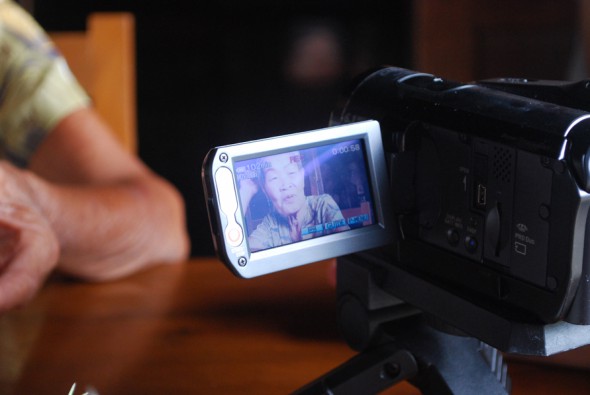Museums and Intangible Heritage Field School
The Intangible Cultural Heritage and Museums Field School is organized by Sirindhorn Anthropology Center in cooperation with the Asian Academy of Heritage Management and UNESCO Bangkok.
2009- present: Kate Hennessy, Resource Person/ Lecturer
From the field school website:
“Since the adoption of the UNESCO Convention concerning the Protection of the World Cultural and Natural Heritage in 1972, which defined world cultural heritage as monuments and sites of “universal value,” the field of heritage preservation has focused largely on the conservation of material culture—particularly the built landscape.
However, in recent years, the meaning of heritage has gradually expanded to include living cultural practices, culminating in the adoption of the United Nations Convention for the Safeguarding of the Intangible Cultural Heritage (ICH) in 2003, which calls upon governments and local communities to collaborate in the protection of the oral histories, performing arts, social practices, and local knowledge and skills that constitute a vital source of the world’s inheritance. This expansion of heritage management to include intangible culture has created an unprecedented demand for analytical expertise and methodological approaches drawn from the discipline of cultural anthropology. This is particularly true in the Greater Mekong Sub-region, where heritage programs have not kept pace with the demand for expertise in intangible heritage management.
In response to this need, and as part of its commitment to the expansion of anthropological research and knowledge in Thailand and the region, in 2009, the Princess Maha Chakri Sirindhorn Anthropology Centre (Public Organization) launched the Intangible Cultural Heritage Field School program—a two-week training program open to recent university graduates, mid-career professionals, educators, and others involved in the heritage field. Developed in partnership with UNESCO Bangkok and the Asian Academy of Heritage Management (AAHM) and offered once per annum, the Intangible Cultural Heritage Field School program aims to equip participants with both the conceptual and practical tools to actively engage with intangible heritage issues.
Building on its institutional expertise in the area of anthropological research, SAC’s Intangible Cultural Heritage Field School program aims to offer anthropological frameworks as well as practical tools for engaging in the growing field of Intangible Cultural Heritage management in the Asian region, with the corollary objective of fostering transnational collaboration and understanding of the region’s shared heritage.”

